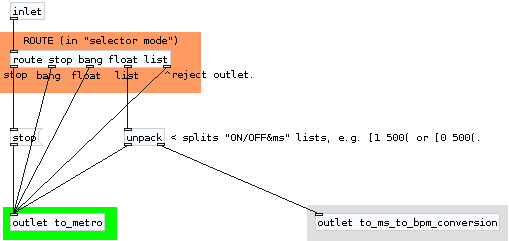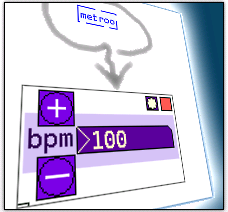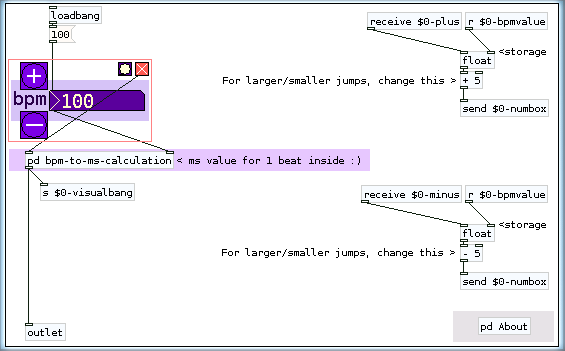@gsagostinho Great! Thanks for your feedback.
You're right about mismatch. The problem was that [unpack] received things it didn't have a method for. It was a tricky problem. So I created a message-diversity manager, based on [route], in the so called "selector mode".

There you can see that, now, metroo can do the same as Pd's metro.
"float" is for incoming numbers such as 0 and 1, and nonzero numbers, e.g. 77 or 101,...Pd's metro accepts nonzero numbers...and they act like a 1! So metroo has to do the same.
Then if you throw metroo a [banana(, it tells you it has no method for it! Well...that's what the rightmost reject outlet is useful for. So, now, metro and metroo behave alike.
I think this version is the clone we were dreaming of. Besides, I've followed your advice on the colour and flashing of the bang object. Now, it's a standard bang.

Other things to notice, just in case sbdy wants to give it a try, and find some bug:
-
[metroo] accepts creation arguments. Type [metroo 120] and it should appear at that tempo. However, if you don't specify a tempo, it defaults to 100bpm. It remembers your creation argument/tempo, but it doesn't remember your latest adjustment. As always, if you want it to remember your latest tempo, use [loadbang] plus the corresponding message, connected to metroo's right inlet:
[loadbang]
|
[130(
-
I've added a little ON/OFF number box. With this, you can start and stop metroo without using other objects.
-
Now, the flashing bang can also be used "manually" for sending out bangs, even while it's active. Lots of uses for this.
-
You can slide the bpm number box as well as the ms number box.
-
The minimum bpm is 10. This is because slower bpm values have really large beats...and it can be very confusing if you change the bpm and nothing happens during a whole minute! So its limit is 10 bpm.
Download:
metroo.pd
I live and love in Argentina







